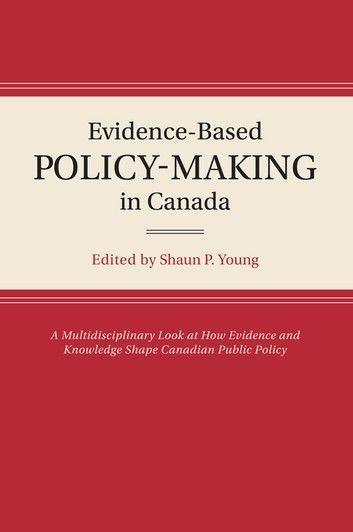| FindBook |
有 1 項符合
Evidence-Based Policy-Making in Canada的圖書 |
 |
Evidence-Based Policy-Making in Canada 作者:Shaun P. Young 出版社:Oxford University Press Canada 出版日期:2013-12-16 語言:英文 |
| 圖書館借閱 |
| 國家圖書館 | 全國圖書書目資訊網 | 國立公共資訊圖書館 | 電子書服務平台 | MetaCat 跨館整合查詢 |
| 臺北市立圖書館 | 新北市立圖書館 | 基隆市公共圖書館 | 桃園市立圖書館 | 新竹縣公共圖書館 |
| 苗栗縣立圖書館 | 臺中市立圖書館 | 彰化縣公共圖書館 | 南投縣文化局 | 雲林縣公共圖書館 |
| 嘉義縣圖書館 | 臺南市立圖書館 | 高雄市立圖書館 | 屏東縣公共圖書館 | 宜蘭縣公共圖書館 |
| 花蓮縣文化局 | 臺東縣文化處 |
|
|
圖書介紹 - 資料來源:樂天KOBO 評分:
圖書名稱:Evidence-Based Policy-Making in Canada
Making policy is what governments do, but there are some fascinating and hotly debated issues associated with how government decisions get made in the interests of the people. The concept and practice of evidence-based policy-making insists that properly developed public policy draws on the best available evidence. This book considers how governments in Canada have historically interacted with research and what directions these interactions may take in the future. The goal of government making decisions based on information collected in a scientific (or at least methodical and unbiased) manner goes back to the eighteenth-century Enlightenment. Given recent advances in the accumulation of such evidence, however, creating evidence-based policy has become an increasingly complex process. The ongoing generation of new knowledge continues to increase both the number and variety of potential policy issues and challenges. This process is often juxtaposed with "opinion-based" policy-making - a selective use of evidence or a reflection of the untested views of individuals or groups. In fact, the role of evidence in policy-making takes us to the very heart of the democratic process. Many victims of crime want longer prison sentences for criminals, but research shows that this is expensive and largely ineffective. To what extent should opinion be allowed to undermine the primacy of evidence? And other issues, such as the existing cultural and institutional challenges to evidence-based policy-making, are also considered across a range of disciplines.
|










